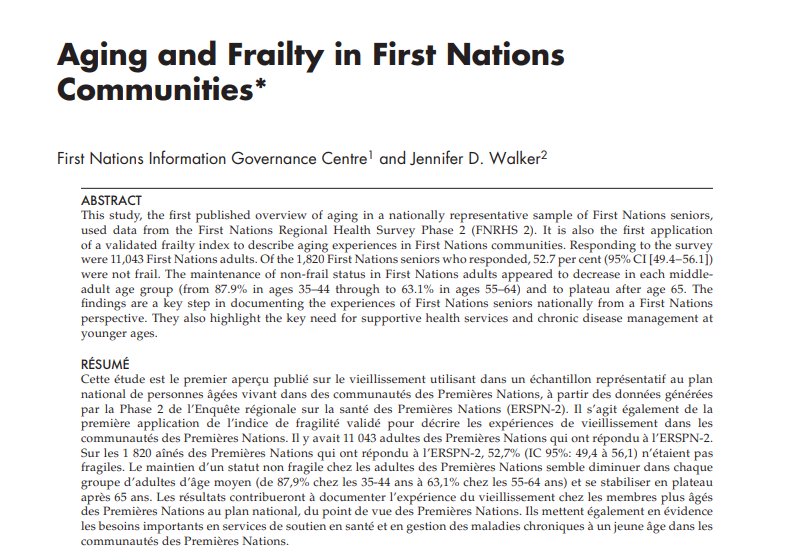Aging and Frailty in First Nations Communities

This study, the first published overview of aging in a nationally representative sample of First Nations seniors, used data from the First Nations Regional Health Survey Phase 2 (FNRHS 2). It is also the first application of a validated frailty index to describe aging experiences in First Nations communities. Responding to the survey were 11,043 First Nations adults. Of the 1,820 First Nations seniors who responded, 52.7 per cent (95% CI [49.4−56.1]) were not frail. The maintenance of non-frail status in First Nations adults appeared to decrease in each middle-adult age group (from 87.9% in ages 35–44 through to 63.1% in ages 55–64) and to plateau after age 65. The findings are a key step in documenting the experiences of First Nations seniors nationally from a First Nations perspective. They also highlight the key need for supportive health services and chronic disease management at younger ages.
-
By
-
Published
Jun 15, 2020
-
Subject Area
- Mental Health and Wellness
-
Audience
- Service Providers (Non-profits, Community Organizations, Local government)
- Government
- Health Authorities
- Academics
-
Category
